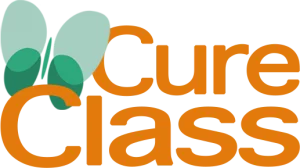Research Summary: rTMS and Memory in Schizophrenia Patients
In a recent study published in Neuropsychopharmacology Reports, repetitive transcranial magnetic stimulation (rTMS) was found to improve certain aspects of prospective memory in individuals diagnosed with schizophrenia. Prospective memory refers to the ability to remember to carry out future activities.
During the trial, 50 patients suffering from schizophrenia were split into two groups receiving either active rTMS treatment or sham rTMS treatment. The results were then compared with those of 18 healthy individuals who did not receive any treatment. Both, event-based and time-based prospective memory scores were found to be considerably lower in schizophrenia patients at the beginning of the trial. However, after undergoing rTMS treatments, patients’ event-based prospective memory scores improved significantly, drawing close to the scores of the healthy controls.
Key Findings:
- Prospective Memory Improvement: Schizophrenia patients experienced a marked improvement in event-based prospective memory after undergoing rTMS treatments.
- Selective Memory Benefits: The treatment specifically enhanced memory associated with external events, though it made no significant improvement to time-based memory tasks.
- Potential Therapeutic Option: These findings suggest that rTMS might serve as a promising therapeutic route for dealing with memory impairments relating to schizophrenia.
Both, event-based prospective memory—remembering to do something when an external event occurs—and time-based prospective memory—remembering to carry out an action at a specific time in the future—were significantly improved in schizophrenia patients after the active rTMS treatments. Yet, time-based prospective memory did not show similar improvement, indicating that the benefits of rTMS for memory functions might be selective.
The findings of this study offer a potential therapeutic option for prospective memory in patients with schizophrenia, according to co–corresponding author Su-Xia Li, MD, PhD, of Peking University in China.
Personal Statement as a Psychiatrist
As a practicing psychiatrist, I find this development quite promising in terms of offering an effective therapeutic avenue for patients with schizophrenia. Memory impairments can severely impact the quality of life in these individuals, and the potential for rTMS to selectively improve event-based prospective memory could offer tangible improvements in their daily functioning. However, the lack of significant results for time-based prospective memory underscores the need for continued research to develop comprehensive treatment strategies for cognition in schizophrenia.
Dr James Alexander Smith, MD, Cure of Mind











